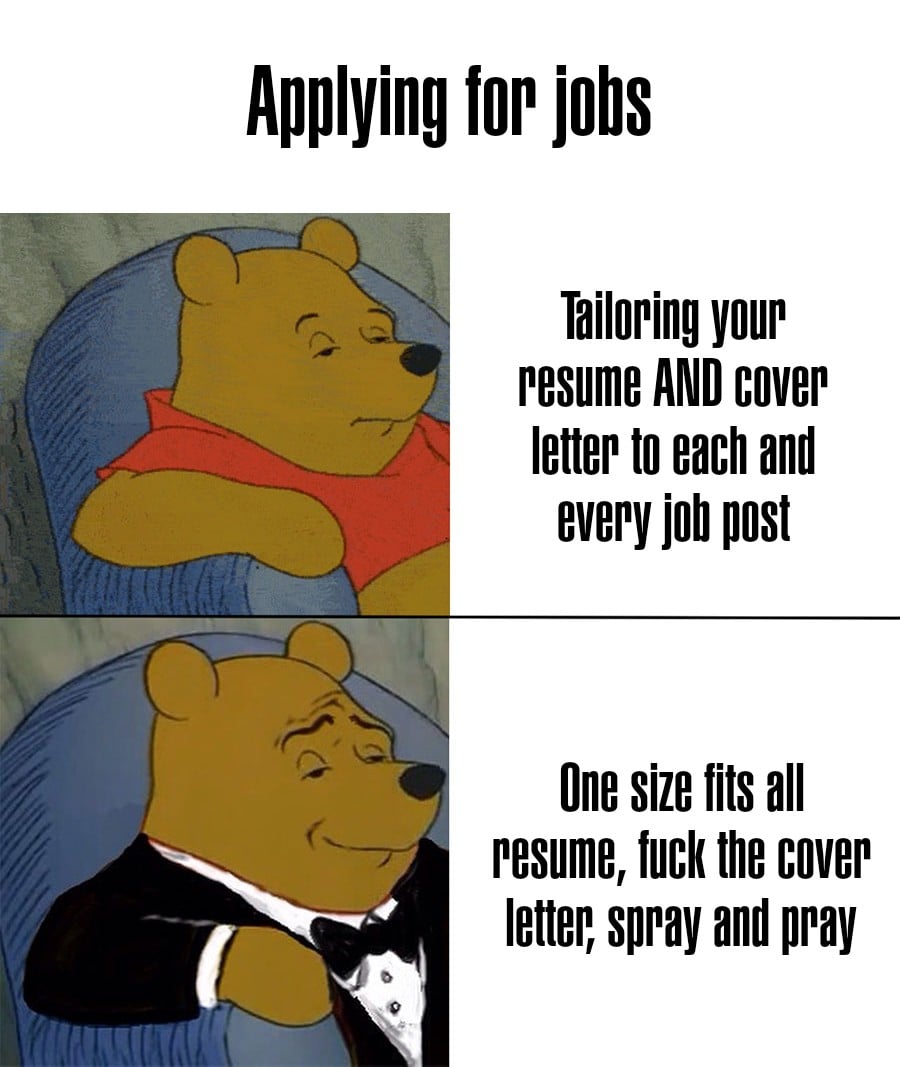In biology, the top one is called K-strategy and the bottom one R-strategy.
Both are valid strategies.
But generally, K is better suited for highly developed, intelligent, cooperative and social animals.
R is better suited for animals that live alone in a hostile environment full of predators.
There's a message about the modern job market in here somewhere I guess.

